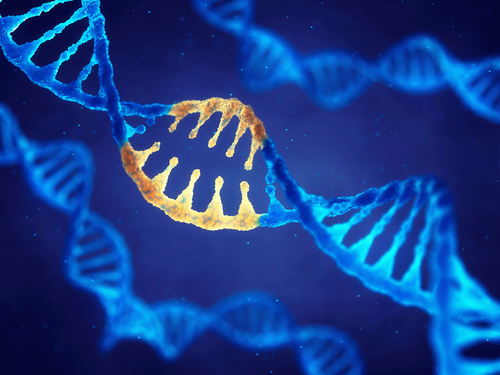Heart, Brain Very Sensitive to Mitochondrial Defects in Early Development, Study Shows

Mutations in genes involved in the production of mitochondrial proteins may affect the heart and brain severely during early development and lead to a poor prognosis, researchers have found.
That finding is in the study “Genetic defects in mtDNA-encoded protein translation cause pediatric, mitochondrial cardiomyopathy with early-onset brain disease,” published in the European Journal of Human Genetics. The study further highlights the importance of mitochondrial proteins in human health. Identifying specific mutations may help researchers find new ways to treat mitochondrial disease.
Researchers searched for genetic defects in three children who had severe cardiomyopathy (heart disease) and early-onset brain disease. These children also were found to have issues with a process called oxidative phosphorylation, which is a mitochondrial process through which cells get most of their energy.
Oxidative phosphorylation is conducted by the OXPHOS system, which consists of five different enzyme complexes in the mitochondria.
DNA provides the instructions to make a molecule called RNA. In turn, RNA provides instructions to make a protein in a process called translation. The mitochondria has its own set of DNA, which provides instruction for making some of the proteins involved in the OXPHOS complex. The rest of the instructions come from nuclear DNA, which is located outside the mitochondria in a different cellular compartment, called the nucleus.
In this way, disorders affecting oxidative phosphorylation can have a dual genetic origin. One of the ways to determine the mutations that cause these diseases is through a process known as whole exome sequencing (WES).
Researchers used WES on the three children with OXPHOS deficiencies.
In the first patient, researchers identified a mutation in the QRSL1 gene, which provides instructions to make a vital mitochondrial protein. In further experiments, researchers were able to restore OXPHOS function by using the correct version of the QRSL1 gene.
In the second patient, researchers identified two new disease-causing mutations, one from the mother and one from the father, that affected one gene, MTO1.
In the last patient, researchers again discovered two mutations that affect one gene, AARS2.
All of these disease-causing genes discovered through WES are involved in the process of translation of mitochondrial proteins. These genes help mitochondrial RNA molecules (created from mitochondrial DNA) become proteins. Defects in mitochondrial protein translation led to severe pediatric cardiomyopathy and brain disease with OXPHOS abnormalities.
These defects most likely cause a major issue during embryonal development, which is when these vital organs are being developed.
This leads the study authors to believe “the heart and brain are particularly sensitive to defects in mitochondrial protein synthesis during late embryonic or early postnatal development.”
This is probably due to “the massive mitochondrial biogenesis occurring at that stage. If both the heart and brain are involved, the prognosis is poor with a likely fatal outcome at young age,” the researchers said.






